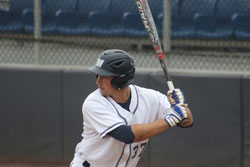As the basketball season approaches, it’s hard not to focus on the lingering problem centered in professional basketball right now. The National Basketball Association, currently in a lockout because of conflicts between the league and the player’s union, has a lot of repercussions in NCAA basketball. First off, a significant amount of media attention will be jolted at the NCAA because of a lack of NBA developments. This is a dream come true for college fans looking for broader national media attention.
It’s presumable that many CBS televised college games will be the center of the sports world this year. With the NBA season approaching and still no deal cut and both sides clearly far apart on the issue, college basketball is looking at a hugely profitable season. But this week’s piece centers in on more of an inside look at a facet dealing with both the college and professional sides: impact of the lockout on recent graduates and draftees into the NBA.
Two rounds of draftees, or 60 college athletes just gave up career aspirations and possibly the remainder of a college education to enter the professional sports world. Many without their bachelor’s degree and most barely 21 or 22 years-old, were plunged into the business side of the profession. Shortly after having their dreams come true and being drafted onto a NBA class roster, the player’s union and league officials drifted apart in terms of division of revenues, length of agreements and salary cap.
Now all the money these players would (and should) be making is stalled as some have not signed contracts or whose contracts involve on court bonuses. These pros, or what you can also call recent students, have forgone significant income possibilities in the work world, giving up a further career path to join a basketball squad.
Although their basketball contracts are extremely financially beneficial to them (and of course draws them to play instead of work), their lives have been cast upside down with the lockout. They went from “signing on” to play every day to make a hefty pay check and work to get better to a complete “limbo” of not knowing if their careers will take root. So now instead, many of these rookies need to work on staying in shape to impress new coaching staffs as they make their initial NBA first impressions. The careers of some of these rookies may just have been affected enough by this lockout that they could be pleasantly surprised about being cut from the 15 man roster or sent to the NBA’s D-League or “minor league.”
This year’s draft class, which features highly impressive talent, came from a very exciting season in college basketball. A year of good ratings for the sport and a championship game which saw the underdog come oh-so-close produced rookies whose futures in the NBA may not necessarily be bleak, but are genuinely affected by a complete lack of an NBA. Some names to watch include BYU’s Jimmer Fredette, whose outside shot captivated crowds while carrying BYU to become a highly respected ranked team, and Kemba Walker, whose UCONN team won the championship. Others include: Derrick Williams from Arizona, Kyrie Irving from Duke, Marshon Brooks from Providence, and Brandon Knight from Kentucky.
These players, who are top talent from the draft, may not be as affected as lesser talented rookies drafted in the late first and second rounds but a change from their college careers is almost expected. Now that no team training has occurred and the NBA remains in turmoil with stars drifting to European and Asian teams, these college grads and recent students must privately work hard to establish themselves on their teams once the league reforms. Something to look out for will be the development of these players, which now will evidently be slower than the rookies of previous years and a united NBA. They will have to work harder than many in the past and reflect on a lot of their college-years coaching to confirm their spot on the roster and impact in the league once it is back.
Although the NBA experienced a similar lockout 13 years ago, this is another one for the history books. So many people have been affected and the season’s slotted start has not even occurred yet. What most analysts don’t touch upon is the true impact of the lockout on the new rookie class, their new roles in the league and eminently its role on college basketball.
Sensing league turmoil and looking to bring further success to their programs, many athletes skipped out on the draft knowing that they could soon be affected by it. Players like Harrison Barnes of UNC, Jared Sullinger and Aaron Cook of Ohio State University, and Jeremy Lamb of UCONN are the big name stars who could’ve forgone an education to take up NBA dreams. But they stayed behind, will look to bring success to their programs and will undoubtedly have an easier transition to the NBA than this year’s rookies once they are drafted.
The average fan does not realize how complicated the sport and the business of the sport can be, or even if they do, many do not understand the scope of impact felt by the business of the sport. Its repercussions can be felt all the way back into the average NCAA division I basketball game, its talent, its market, its profit and the lives of young adults who may now be in career jeopardy because of a complicated closing of one of the world’s largest sports leagues.


